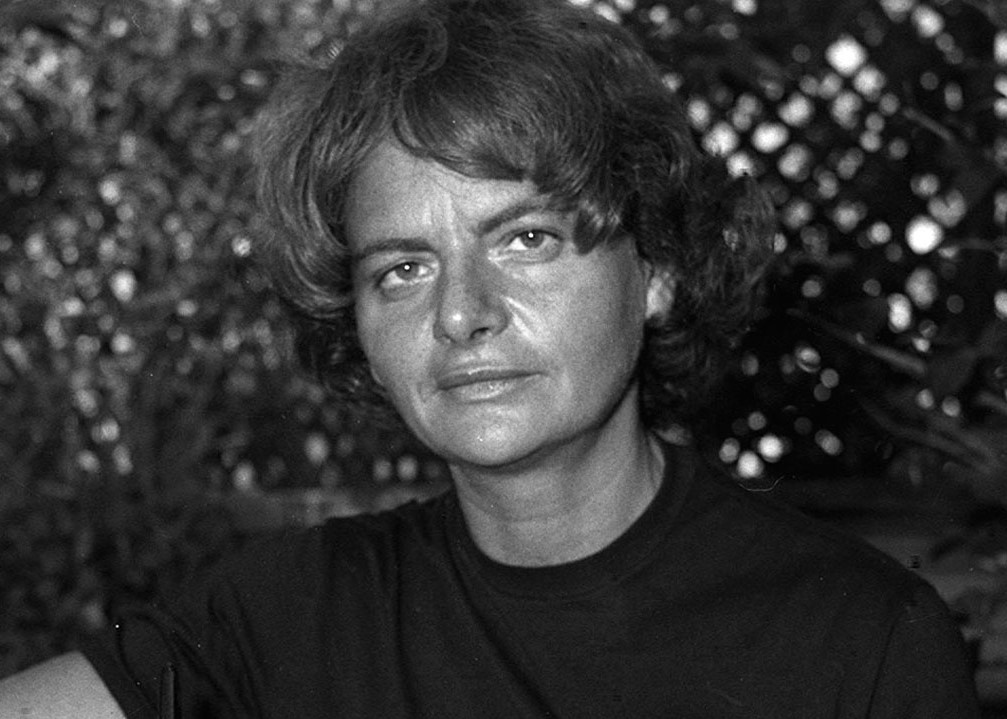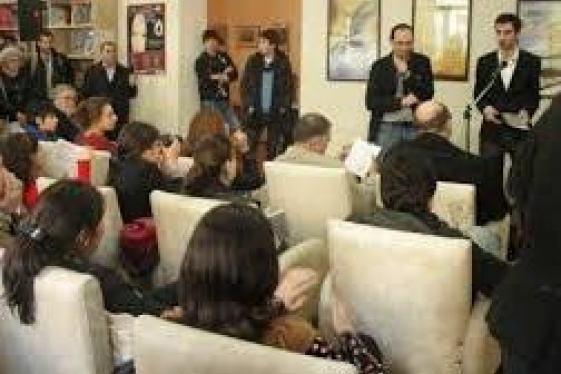

Elsa Morante is one of the most underestimated writer of the century. Italian novelist, short story writer and poet, especially known for the epic and mythical quality of her works, which usually center upon the struggles of the young in coming to terms with the world of adulthood, Elsa was born in Rome on August 18, 1912, to Irma Poggibonsi from Emilia Romagna and a Sicilian father, Francesco Lo Monaco.
Elsa grew up in the popular Testaccio neighborhood with her mother and 4 more brothers, although one of them died early, signing all Elsa’s life and her writing as well. She didn’t have an easy childhood since she was anemic and unhealthy she couldn’t attend to school with other children.
At the age of six, she moved for a while to her godmother, the noblewoman Maria Guerrieri di Gonzaga in a villa situated in the Roman quarter of Nomentano. When the Morante family moved to Monte Verde Nuovo in 1922, Elsa joined them, attending the Virgilio gymnasium. On completing her schooling at the age of eighteen, she left her family’s home and went to live by herself. She began university studies in literature at the University of Rome, but left for financial reasons and earned her living by editing doctoral theses and giving private lessons in Latin.
Her career as a writer really began in 1935 when she started to work at children’s journal and “School’s Laws”. In the same year she published her first novel “Qualcuno bussa alla porta”. Her first book instead, was a collection of short stories called “The Secret Game) published in 1941. That year was also a turning point in her private life: she met and married the fellow novelist and film critic Alberto Moravia.
The marriage brought her into contact with leading Italian writers and intellectuals of the day such as Pasolini, Umberto Saba and Sandro Penna. In 1943, when Alberto Moravia was accused of anti-fascist activities, the couple moved to Fondi, in the south of the Lazio region, where they hid until the liberation in 1944, when they returned to Rome. The south, which she loved very much, constitutes the background of most of her narrative work, which often deals with persecution and injustice and which is modeled to a large extent on French and Russian novelists of the nineteenth century.
Elsa had a particular way of writing and, just with few exceptions, she wrote in her own studio: Elsa’s Room is a required stop in Rome! She wrote longhand on one side of the page, using a consistent type of notebook for a work, but a different type for each different work. Once finished, apparently she would go back and on the reverse side of the page make notes, drawings, and basically develop more fully characters, plot lines, and ideas.
Even if she was childless, Morante wrote often about mothers and children… also, she transferred some of that love to her cats.
Her marriage wasn’t easy at all, she often stayed in the shadow of her husband trying to gain her own position and credibility in world that was most incline to men. She needed both autonomy and profound affection. She also tried to have a child but at the end she decided against it, later regretting the lost opportunity
In 1961, after years of fights, she finally separated from Alberto Moravia. This was like a second born, the beginning of a period of travel and journalistic reporting.
In the 1960s she experienced an inner conflict resulting from her need to be involved, to commit herself, to participate in the movement for a democratic renewal of Italian society on the one hand, and her own reticent nature, on the other. In 1968 she published “Il mondo salvato dai ragazzini”, a collection of poems in various styles, popular songs and a one-act play.
In 1974 Einaudi published her novel “La Storia”, in which she recounts Italy’s wartime history through the eyes of a poor Roman family. She put all her majesty in this work trying to use a simple language understandable to the people. It was only in the 1982 that she turned back to her old style, with her last novel “Aracoeli”. This last novel is a result of how Morante felt, alone and unappreciated with so much left to say but no way to say it. Elsa Morante was a great loner, she knew how to put all her frustration, anger and sadness in words and this still makes her one of the most important writer of our history.
Elsa Morante died of a heart attack in Rome in November 1985. Her ashes were scattered in the sea near the Procida Island, the place where she was with Alberto Moravia in the period of hiding during World War II: despite everything, the best time of her life.
SOURCE: 131
You may be interested
-
'Phantom Limb': A Conversation With Dennis...
Dennis Palumbo is a thriller writer and psychotherapist in private practice. He's the auth...
-
An Unlikely Union: The love-hate story of Ne...
Award-winning author and Brooklynite Paul Moses is back with a historic yet dazzling sto...
-
Former Montclair resident turns recipes into...
Former Montclair resident Linda Carman watched her father's dream roll off the presses thi...
-
''La Gente di Mulberry Street'' presentato a...
Valsinni- Italia, terra di emigranti. Presentato a Valsinni il nuovo saggio storico di Raf...
-
'An Unlikely Union' author Paul Moses on his...
by Ginger Adam Otis Any journalist who has ever been an author has lived through...
-
'An Unlikely Union': Paul Moses on the urban...
Few American cities, with the possible exception of Chicago, do urban ethnic drama like Ne...
-
'Augie’s War' novelist to appear at Elkins bo...
Charleston author and Gazette-Mail wine columnist John H. Brown will conduct a book readin...
-
'Ferrante Fever' Documentary: A Literary Phen...
It's generally accepted that, in order to achieve fame and fortune, one must be prepared t...










